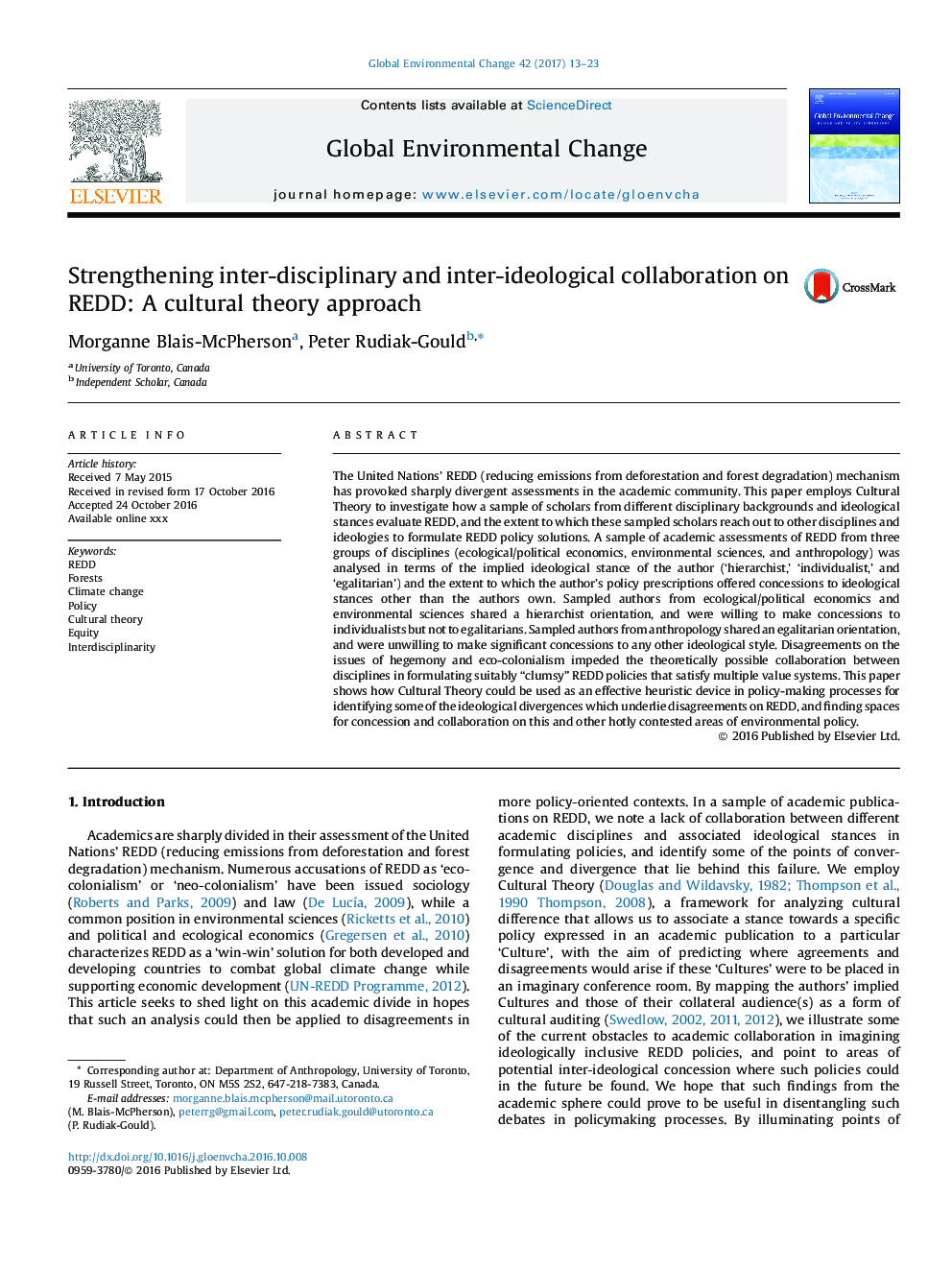| کد مقاله | کد نشریه | سال انتشار | مقاله انگلیسی | نسخه تمام متن |
|---|---|---|---|---|
| 5115974 | 1485116 | 2017 | 11 صفحه PDF | دانلود رایگان |
عنوان انگلیسی مقاله ISI
Strengthening inter-disciplinary and inter-ideological collaboration on REDD: A cultural theory approach
دانلود مقاله + سفارش ترجمه
دانلود مقاله ISI انگلیسی
رایگان برای ایرانیان
کلمات کلیدی
موضوعات مرتبط
علوم زیستی و بیوفناوری
علوم محیط زیست
علوم زیست محیطی (عمومی)
پیش نمایش صفحه اول مقاله

چکیده انگلیسی
The United Nations' REDD (reducing emissions from deforestation and forest degradation) mechanism has provoked sharply divergent assessments in the academic community. This paper employs Cultural Theory to investigate how a sample of scholars from different disciplinary backgrounds and ideological stances evaluate REDD, and the extent to which these sampled scholars reach out to other disciplines and ideologies to formulate REDD policy solutions. A sample of academic assessments of REDD from three groups of disciplines (ecological/political economics, environmental sciences, and anthropology) was analysed in terms of the implied ideological stance of the author ('hierarchist,' 'individualist,' and 'egalitarian') and the extent to which the author's policy prescriptions offered concessions to ideological stances other than the authors own. Sampled authors from ecological/political economics and environmental sciences shared a hierarchist orientation, and were willing to make concessions to individualists but not to egalitarians. Sampled authors from anthropology shared an egalitarian orientation, and were unwilling to make significant concessions to any other ideological style. Disagreements on the issues of hegemony and eco-colonialism impeded the theoretically possible collaboration between disciplines in formulating suitably “clumsy” REDD policies that satisfy multiple value systems. This paper shows how Cultural Theory could be used as an effective heuristic device in policy-making processes for identifying some of the ideological divergences which underlie disagreements on REDD, and finding spaces for concession and collaboration on this and other hotly contested areas of environmental policy.
ناشر
Database: Elsevier - ScienceDirect (ساینس دایرکت)
Journal: Global Environmental Change - Volume 42, January 2017, Pages 13-23
Journal: Global Environmental Change - Volume 42, January 2017, Pages 13-23
نویسندگان
Morganne Blais-McPherson, Peter Rudiak-Gould,